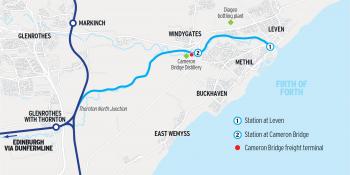In ancient Greek theatre, when the plot line of a play had reached an apparent dead end, a crane would lower a god onto the stage, whose superhuman powers would resolve the playwright’s conundrum. Hence the phrase ‘deus ex machina’.
Even with all the usual tropes of Greek tragedy – betrayal, cannibalism, incest and so on – it is debatable whether Aeschylus of Sophocles could have matched the plot developments in the 25 years of railway policy and politics since the first franchised trains entered service 25 years ago in January 1996. And to bring this experimental theatre to a conclusion, the Government has turned to Keith Williams, publication of whose much-delayed and long-heralded review is, as ever, imminent.
What we have been led to expect is that Mr Williams is going to whistle up a Kirow 250 and solve the problems of fragmentation by lowering a ‘guiding mind’ onto the railway stage. Like hydrogen and digitalisation, or even Brexit deals, the guiding mind is another example of the magical thinking that so appeals to Government.
Only when challenged with practical examples do we know whether we are dealing with a serious proposition or with wishful thinking akin to the ‘with one bound he was free…




